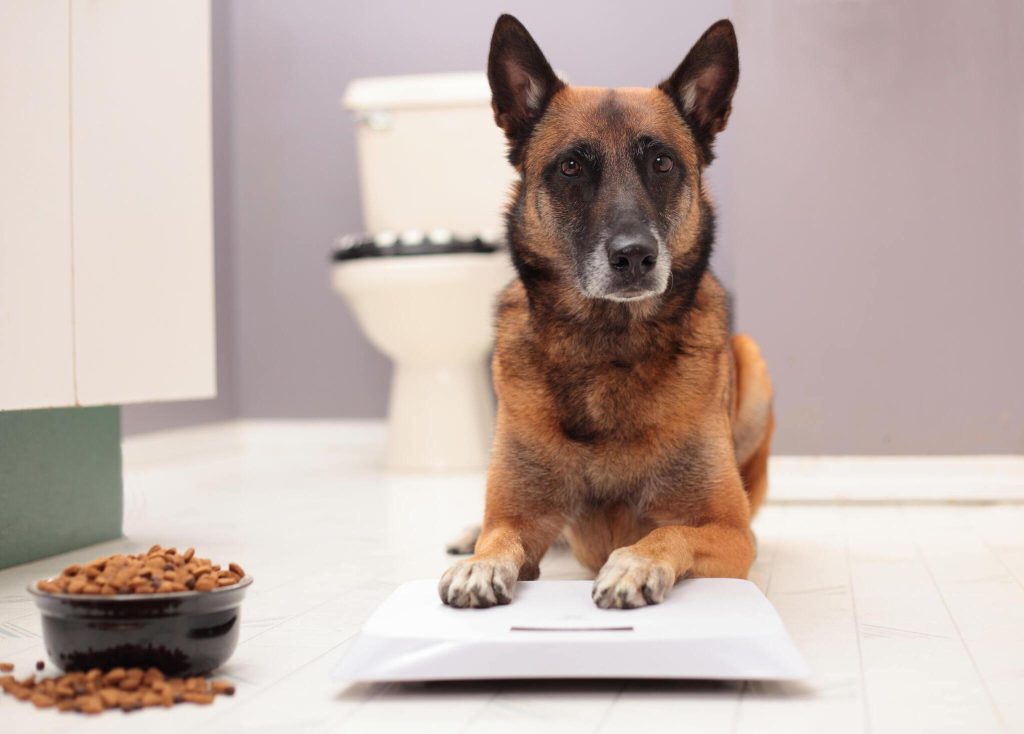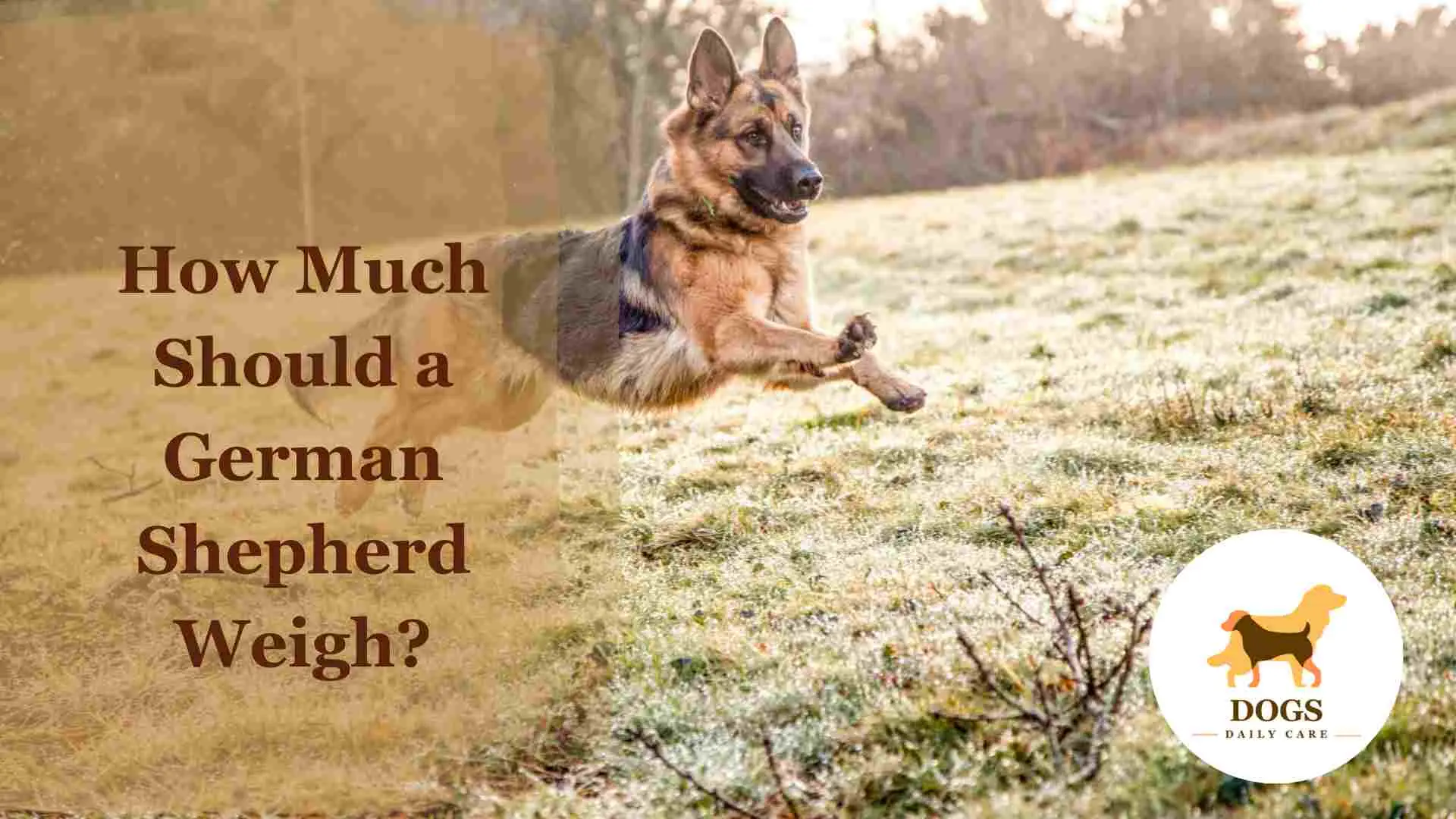How Much Should a German Shepherd Weigh? – An Ultimate Guide
German Shepherds, renowned for their intelligence, loyalty, and versatility, are among the most popular dog breeds worldwide. Originating in Germany, these majestic canines have captivated hearts with their dignified demeanor and remarkable abilities, making them favored choices for families, police, and service roles. But beyond their admirable traits lies an important aspect of their care: maintaining a healthy weight. A German Shepherd’s weight is not just a number on a scale; it’s a crucial indicator of their overall health and vitality.
Ensuring your German Shepherd maintains an ideal weight is more than just about appearance; it’s about their longevity and quality of life. An optimal weight range can significantly impact their physical health, preventing issues like joint stress and heart problems. This post aims to guide you through understanding the ideal weight for your furry companion, considering factors like age, gender, and lifestyle, thus empowering you to provide the best care for your loyal friend.
Understanding the Ideal Weight Range

Knowing the ideal weight range for your German Shepherd is key to ensuring their health and happiness. This range varies depending on several factors, such as age, gender, and individual growth patterns. Generally, adult male German Shepherds weigh between 65 to 90 pounds, while females are typically lighter, weighing between 50 to 70 pounds. However, these are just guidelines. Each dog is unique, and their ideal weight will reflect this.
It’s also important to consider how a German Shepherd’s weight changes with age. Puppies, for instance, will weigh less but grow rapidly. To help you understand this better, here’s a simple table showing the typical weight range at different ages for both male and female German Shepherds:
Keep in mind, these numbers can vary based on individual factors like metabolism and activity level. Your vet can provide the most accurate assessment for your specific dog. Regular check-ups will ensure you’re on track with their weight as they grow and mature.
Factors Influencing a German Shepherd’s Weight

A German Shepherd’s weight isn’t just about food; it’s influenced by a mix of factors. Understanding these can help you manage their weight effectively. Let’s explore the key elements:
Genetics
Just like people, every German Shepherd is unique. Their genetic makeup plays a big role in determining their size and weight. Some are naturally larger, while others are smaller. It’s important to know your dog’s lineage to understand their natural body type.
Diet and Nutrition
What your German Shepherd eats is crucial. A balanced diet rich in nutrients is essential. Avoid overfeeding and choose high-quality dog food suited for their age and activity level. Remember, treats are nice but should be given in moderation.
Exercise
These active dogs need regular exercise to stay fit. Without enough physical activity, they can easily gain weight. Daily walks, playtime, and training exercises are great ways to keep them in shape.
Health Conditions
Certain health issues can influence weight. Problems like thyroid disorders or hormonal imbalances can lead to weight gain or loss. Regular veterinary check-ups are vital to catch and manage any health concerns early.
By paying attention to these factors, you can help your German Shepherd maintain a healthy weight. A well-balanced diet, regular exercise, and routine vet visits are key. Remember, every dog is different, so tailor your care to meet their individual needs.
Monitoring Your German Shepherd’s Weight
Keeping an eye on your German Shepherd’s weight is a key part of their health care. Regular weight checks help ensure they stay in top shape. Here’s how to do it effectively:
Visual Inspection
Look at your dog from above. You should see a noticeable waist behind their ribs. From the side, their abdomen should tuck up behind their ribcage. This is a quick way to gauge if they’re at a healthy weight.
Feeling the Ribs
You should be able to feel your dog’s ribs easily, but they shouldn’t be visible. There should be a slight fat covering over them. This is a simple hands-on method to check their body condition.
Regular Weigh-Ins
Use a pet scale or visit your vet for regular weigh-ins. Tracking their weight over time helps spot any sudden changes, which could indicate health issues.
Consult Your Vet
If you’re unsure about your German Shepherd’s weight, your vet is the best resource. They can provide guidance and help set a target weight, if necessary.
Diet and Exercise Tips for a Healthy Weight
Maintaining a healthy weight in your German Shepherd involves a balance of the right diet and regular exercise. Here’s how you can manage it effectively:
Diet Tips:
- Quality Food: Choose high-quality dog food that’s appropriate for their age, size, and activity level.
- Portion Control: Follow feeding guidelines to avoid overfeeding. Adjust portions based on your dog’s activity.
- Healthy Treats: Opt for healthy treats and avoid overindulgence.
Exercise Tips:
- Regular Walks: Daily walks are essential, not just for exercise but also for mental stimulation.
- Playtime: Incorporate play into their routine. Fetch, tug-of-war, and agility exercises are great.
- Consistency: Keep a consistent exercise schedule. Regular activity is key for weight management.
Remember, each German Shepherd is different. What works for one may not suit another. Always consult your vet for personalized advice, especially when making changes to your dog’s diet or exercise routine.
Frequently Asked Questions (FAQs)
1. What is the ideal weight for an adult German Shepherd?
Adult male German Shepherds should weigh between 65-90 pounds, while females should be between 50-70 pounds. These ranges can vary based on individual factors.
2. How can I tell if my German Shepherd is overweight?
If you can’t easily feel their ribs without pressing hard, or if they lack a visible waist when viewed from above, your German Shepherd might be overweight.
3. What are the risks of my German Shepherd being overweight?
Overweight German Shepherds are at risk for joint problems, diabetes, and heart disease. Maintaining a healthy weight is crucial for their overall health.
4. Can a German Shepherd’s weight affect its temperament or behavior?
While weight doesn’t directly affect temperament, overweight dogs may become less active and more lethargic, impacting their behavior and quality of life.
5. How do I adjust my German Shepherd’s diet if they are overweight?
Consult your vet for a diet plan. Generally, it involves feeding a balanced diet with controlled portions and possibly switching to a weight management dog food.
Conclusion
In summary, understanding and maintaining the ideal weight for your German Shepherd is not just about aesthetics; it’s a vital part of ensuring their health and happiness. A healthy weight contributes significantly to their overall well-being, reducing the risk of numerous health issues and enhancing their quality of life. It’s about giving them the best chance for a long, active, and joyful life. Remember, each German Shepherd is unique, and their needs can vary. Regular vet visits, a balanced diet, and consistent exercise are key to keeping your furry friend in top shape.
As a German Shepherd owner, your role is crucial in monitoring and managing their weight. Stay informed, be proactive, and always seek professional advice when needed. By doing so, you’re not just caring for a pet; you’re nurturing a loyal companion who will bring joy and companionship for years to come. Let’s ensure these magnificent dogs receive the love and care they deserve.







